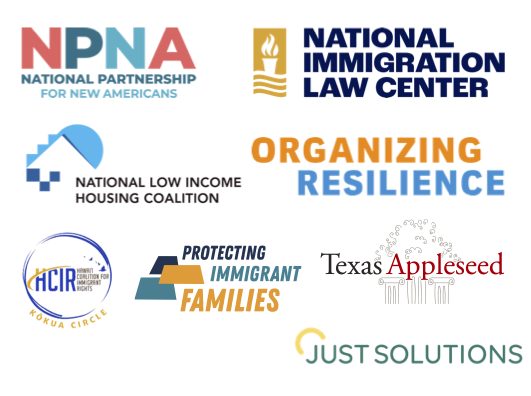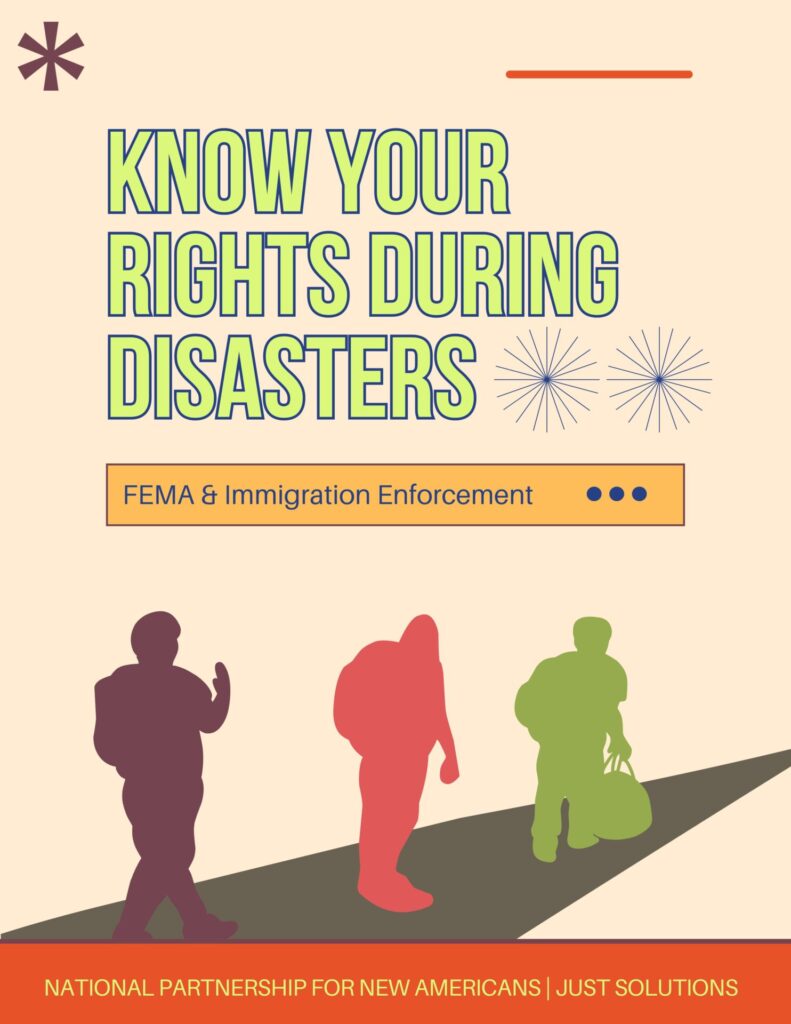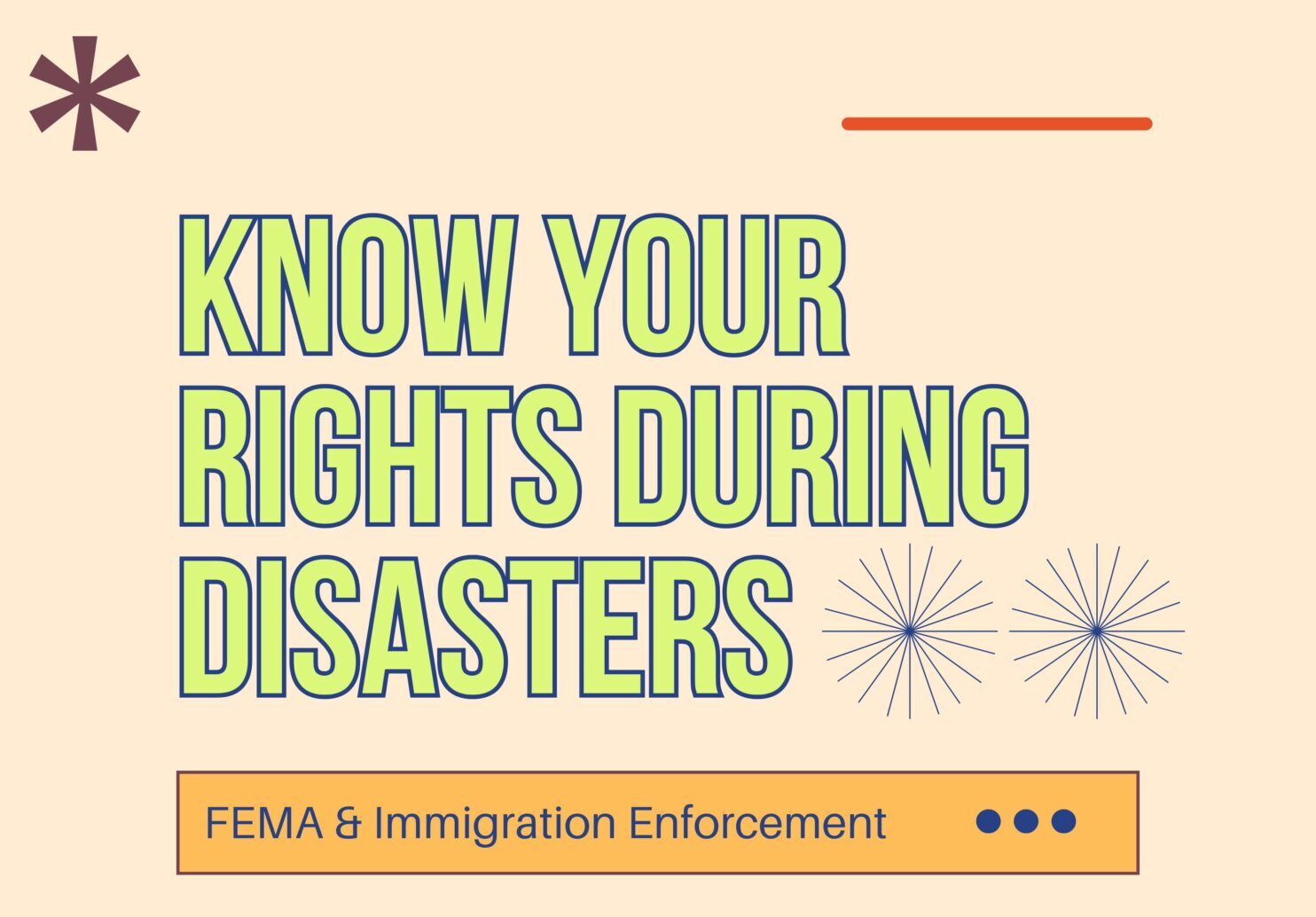President Trump is leveraging the full power of the federal government to implement a massive deportation program. This dragnet is eroding due process, expanding surveillance of communities, threatening political speech, and is being used as a false justification to deploy military assets into American cities over the objections of local governments. It is sweeping up families, including U.S. citizens, based on their race or appearance, despite official claims that immigration enforcement actions are targeting individuals with criminal histories. This has created significant fear and uncertainty in immigrant communities.
These actions have renewed fears over potential immigration enforcement actions during disasters. In February, the Department of Homeland Security rescinded its sensitive locations policy, which had discouraged immigration enforcement actions at houses of worship, schools, hospitals, and other settings deemed generally off-limits for immigration enforcement, including emergency shelters during natural disasters. Decisions to conduct enforcement actions in such locations are now at the discretion of local Immigration & Customs Enforcement (ICE) leadership, with some exceptions due to standing court orders. Community members are wondering whether pursuing emergency assistance during and following disasters might put themselves or their family members at risk of immigration consequences.
Just Solutions is partnering with multiple national and local organizations to develop and update guidance for immigrant communities and immigrant-serving organizations on how to navigate emergency relief services during natural disasters.

This document, in a simple Q&A format, summarizes what we currently know and what we don’t know about immigrant eligibility for emergency services.

As of the publication of this article, since January 2025 there are no new policies adopted by the Federal Emergency Management Administration (FEMA) or the Department of Homeland Security (DHS) establishing restrictions on emergency non-cash or cash assistance. You might have seen this Washington Post article regarding DHS/FEMA’s restrictions on nonprofits/NGOs serving undocumented immigrants during a disaster. With disaster season upon us, and the rapidly changing and confusing situation at FEMA, we want to share clarifying points about the article.
We confirmed that the article is referencing DHS’s FY 2025 Standard Terms and Conditions issued on April 18th, which are currently being challenged in court. These Terms and Conditions have no effect on existing grants awarded before April 18th, 2025
According to court documents, most FEMA grants, including ALL disaster relief grants, are EXEMPTED from the ‘Civil Immigration Conditions’ discussed in the article.
- In May 2025, Illinois and 19 other states sued FEMA, arguing that these grant conditions were unconstitutional. A decision on the parties’ motions for summary judgment is expected by September 30th.
- DHS and FEMA stated in court documents that the majority of their grant programs are EXEMPTED from the “Immigration Conditions” discussed in the article and linked above. According to DHS’ lawyers, ALL of FEMA’s Disaster Response grant programs are exempt. A list of FEMA’s grant programs noting exemptions can be found here. See also declaration of David E. Richardson, Senior Official Performing the Duties of the Administrator, FEMA.
- If you experience or hear about FEMA/DHS threatening to enforce these conditions, including them in contract language, attempting to modify or add conditions to existing grants, or putting out information contrary to these exemptions please let us know at disaster-response-information@justsolutionscollective.org
Under federal law, everyone, regardless of their immigration status, can access mass care and emergency assistance.
“Short term, non-cash, in-kind emergency disaster relief” is exempted from restriction based on immigration status in federal statute (8 U.S.C. § 1611(b)(1)(B)).
The information shared in the Know Your Rights guide on FEMA and Immigration Enforcement is still accurate to our best knowledge. Again, with the latest federal guidance, it is up to the local ICE office to determine whether they engage in immigrant enforcement actions, even when their agents are involved in emergency relief actions.
We continue to closely monitor how FEMA is interacting with non-citizens and mixed-status households, how immigration enforcement agencies may be involved, and any changes to guidelines on how local governments and nonprofits can support non-citizens during emergencies. If you see any changes in these areas on the ground, please let us know at disaster-response-information@justsolutionscollective.org
You can use these templates to add your group’s logo to the Partner Organizations page, so that you can share this with your local community:
We also recommend the following resources:
Immigrants should carry this Know Your Rights card from National Immigration Law Center (NILC):

This one-page flier by the Disaster Housing Recovery Coalition and Protecting Immigrant Families for immigrant families navigating access to disaster recovery programs, addressing specific concerns about eligibility, immigration status, and mixed-status families.
This comprehensive guide by the National Homelessness Legal Center provides advice for homeless and other public service providers for rapid response during ICE raids. The guide covers what providers can do from a practical level to best protect clients and staff before, during, and after a raid.
This is a one-stop-shop webpage by NILC that summarizes immigrant eligibility and in-depth information for different disaster recovery programs.
Additional “Know Your Rights” resources are available on the following websites:
National Immigration Law Center: https://www.nilc.org/resources/
American Civil LIberties Union (ACLU): https://www.aclu.org/know-your-rights/immigrants-rights
Immigrant Legal Resource Center: https://www.ilrc.org/red-cards-tarjetas-rojas
United We Dream: https://unitedwedream.org/resources/know-your-rights/
Informed Immigrant: https://www.informedimmigrant.com/resources/
